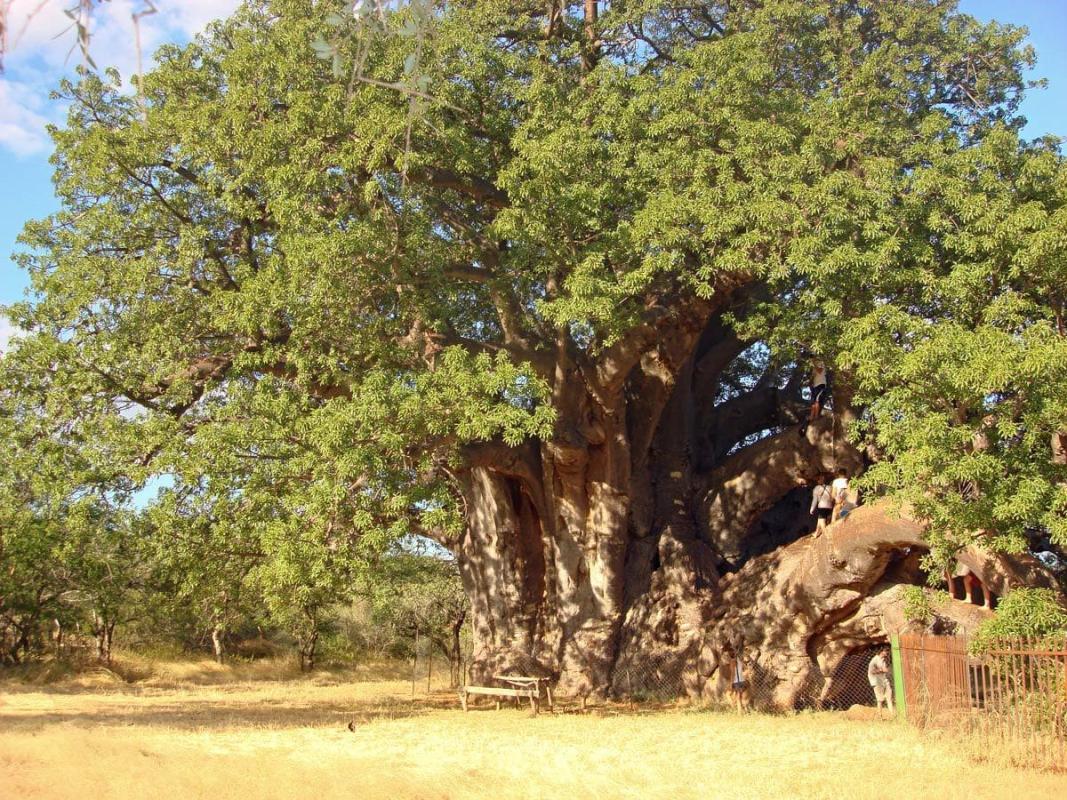
Happy Arbor Week!
01 Sep 2022
Written by Ms Savanna Strauss
Arbor Week is commemorated in South Africa over the first week of September. The programme is overseen by the South African Department of Forestry, Fisheries, and the Environment (DFFE). Arbor Week which highlights the importance of some of the oldest, biggest, and most culturally significant trees in the country. The Sagole Baobab Tree in Limpopo is an example of an historic tree. It is 2,000 years old and the largest in the country.
Arbor Week is an excellent opportunity to encourage all South Africans to engage in sustainable environmental management by planting indigenous trees as a practical and symbolic gesture. The South African government refers to this as ‘greening’ explaining that:
“Greening refers to an integrated approach to the planting, care, and management of all vegetation in urban and rural areas, to secure multiple benefits for communities. Greening in the South African context takes place in towns, townships, and informal settlements specifically because in the past the latter mentioned areas were disadvantaged in terms of planning for parks as well as tree planting in streets and open spaces.”
The preservation of the natural environment and culture demonstrates the vital role that individuals may play for the benefit of current and future generations, as well as our planet's wellbeing, biodiversity, and long-term economic prosperity. Arbor Week allows DFFE and other stakeholders to undertake a big national awareness campaign about the value of trees in our lives, as well as raise awareness about vulnerable tree species. The baobab, for example, is endangered due to habitat loss and the effects of climate change.
South Africa's forest resources are under ongoing threat due to population growth, globalisation, and climate change, resulting in forest land loss, land degradation, and desertification. Forests and tree cover, on the other hand, aid in the prevention of land degradation by stabilising soils, reducing water and wind erosion, and maintaining the soil's nutrient cycle. Furthermore, sustainable use of forest ecosystem goods and services can aid in poverty reduction and make the rural poor less vulnerable to the effects of land degradation.
Trees are a valuable resource that give both environmental and economic benefits. As a result, the DFEE not only promotes tree planting but also recognises the country's champion trees, the Sagole Baobab Tree being at the top of the list. Other indigenous trees on the list include Pretoria's 1000-year-old Wonderboom fig, three Breonadia salicina (matumi) known as the Three Queens in Limpopo, and the Western Cape's Afrocarpus falcatus (Outeniqua yellowwood) known as the King Edward VIIth Tree.
South Africans may make a difference by planting one tree, and eventually a million trees, particularly indigenous varieties. These trees not only protect landscapes and animals, but they also help to clean the air, reduce noise levels, improve food security, and provide a more pleasant living environment. Plant a tree this week if you are in South Africa or wherever you are.
Savanna Strauss, AWEI Junior Operational Officer
We support the free flow of information. Please share:
More content
-
Evaluating key evidence and formulating regulatory alternatives regarding the UK's Hunting Trophies (Import Prohibition) Bill
Dr Michael 't Sas-Rolfes…We evaluate key evidence relating to the Hunting Trophies (Import Prohibition) Bill that was discussed in the UK...
2024Research -

The return of the UK's ill-conceived bill to ban hunting trophy imports
Prof Francis Vorhies…A recent report and poll reveal serious flaws in the UK government’s continued push to ban the importation…
Articles -

India’s Wildlife Economy: Balancing Conservation and Sustainable Use
Mathen ‘Rajeev’ MathewThe concept of a wildlife economy through the sustainable use of wildlife is increasingly recognised as a means…
Articles -

Leveraging free trade to boost Africa’s wildlife economies through wild-harvested products
Dr Wiseman NdlovuThe intra-Africa trade of wild products presents a unique intersection of economic opportunity and environmental conservation. With the...
2024Research -

Insights from the African Wildlife Economy Colloquium
Klarine SchutteThe inaugural African Wildlife Economy Colloquium, held from 4–6 November at Stellenbosch University, brought together a diverse group…
Articles -

Drivers of hunting and photographic tourism income to communal conservancies in Namibia
Mr Joseph Goergen …Hunting and photographic tourism provide ecosystem services that can facilitate conservation. Understanding factors influencing how tourism industries generate...
2024Research -

SANParks Vision 2040: A New Era for Conservation in South Africa
Ms Emily TaylorReimagining Conservation: SANParks' Vision 2040
South African National Parks (SANParks) has unveiled its ambitious Vision 2040, a…
Articles -

In defence of wild meat’s place at the table
Tim VernimmenQ&A — Conservation scientist E.J. Milner-Gulland
Sustainable and safe consumption of wildlife is possible, and important for those…
Articles -

The diverse socioeconomic contributions of wildlife ranching
Candice Denner…The diverse socioeconomic contributions of wildlife ranching are increasingly recognized as a vital element of sustainable development, particularly...
2024Research
Get updates by email
Through impactful research, stakeholder engagement, and professional development, AWEI is supporting the wildlife economy across Africa. Please subscribe for occasional updates on our work and forthcoming events.
Sign up for a quarterly dose of AWEI insights
In a complex and changing world, AWEI generates strategic ideas, conducts independent analysis on wildlife economies, and collaborates with global scholar-practitioners to provide training and expertise for biodiversity conservation, climate resilience, and inclusive economic opportunities in Africa.
